I arrived in Berkeley, California, USA, mid-morning, exhausted. After fifteen hours of travel from Alaska to the urban Bay Area, every step and breath brought me closer to a bed, and blissful sleep—a universal craving when we're running on empty. Standing in the historic Bancroft Hotel, I learned my room would not be ready for several hours. I was early.
Looking into my bleary eyes, the manager said, "I'll change your room assignment." We exchanged smiles. Ten minutes later, contemplating a shower and hours of sleep, I faced a choice that may feel familiar if you’re doing your best to cultivate a spiritual practice and be present amidst distractions and competing must-dos: in two hours, in the room just beneath mine, an optional "meditation mini-retreat" led by poet and Zen Buddhist priest Zoketsu Norman Fischer would begin.
Sleep or meditate? (A hot shower was non-negotiable.)
A bell rang. Sit in a dignified position.
This was safe enough—I was nervous in a room with more than one hundred people, some students, others dressed professionally, many who greeted one another with familiarity. For several hours that afternoon, breathing meditation, mindfulness practice, very few words, and walking meditation restored me in ways sleep alone never could. Silent connections formed between those of us who would participate in The Mindful Lawyer—a conference at the University of California at Berkeley School of Law beginning later that evening to explore the integration of meditation and contemplative practices with legal education and the practice of law.
Justice, … just this, … just is, … began to ripple in my mind. These words still echo years later, reminding me how presence opens doorways to deeper understanding.
Throughout the weekend I became more convinced that cultivating an inner life takes courage and appears counter cultural. This remains true today, perhaps even more so in our increasingly digital and fragmented world.
In 2010, this arena was new in the legal field: I was present at the first-ever Mindful Lawyer conference, joining 185 lawyers, law professors, students, judges, mediators and other dispute resolution professionals gathered in a Berkeley Law School lecture hall. Though I wasn't a lawyer myself, I recognized a familiar yearning as participants shared how difficult it is to admit to a colleague or client, "I have a meditation practice." Their vulnerability echoed what I witness in other professional settings—a universal human need to seek and find inner stillness and meaning no matter the circumstances.
The value of being present in the moment is inestimable for an attorney or during conflict mediation—or really, for any of us navigating life's complexities. Lawyering takes place in a stressful, competitive environment with high stakes for everyone involved. Justice, activism, and social transformation require intention, presence, and wise action. The same is true for parenting, teaching, healing, or simply being fully human in today's world. What I witnessed in that Berkeley lecture hall would help inform my understanding of how presence and spiritual practice serves us across all life's arenas. I would draw on this insight deeply during the next eleven years in my new work life, as ultimately the Director of Communications, Community, and Government Relations for a K-12 school district, where my long-time meditation practice became an essential foundation to navigate high-stakes decisions, honest story-telling, and fast-paced crisis communications and events.
Meditation is a journey, an adventure even, and can take you places you may not expect. This is certainly true for me. I’m inspired by how far we’ve come in understanding neurobiology, neuroplasticity, the brain, somatics, mental health and wellness, and simple breath practices to bring us to the present moment, providing space to reset, refocus, unplug, rest, and connect. My meditation practice at this time in my life was primarily grounded in the contemplative Christian tradition of the desert mothers and fathers, along with centering prayer, plus my lifelong need to be in nature, simply showing up with awareness, wonder, and appreciation. In 2011, I was exploring additional paths and traditions as well, open to however we learn to cultivate a reflective inner life, and connect with Spirit, or Source, or the presence that some name God. Over time, consistent contemplative practice has given me the ability to be present, eyes wide open, grounded, wherever I go, even in the midst of the most intense situations imaginable. And yes, I too get distracted, exhausted, and stressed. Then, I stop. Breathe, Return.
During an afternoon workshop that weekend in Berkeley, listening to our small group talk and reflect upon the morning keynote and teachings, I recall thinking to myself—as a trained spiritual director for more than 15 years, an instructor in a spiritual director formation training program, and now working with Spiritual Directors International and hosting a post-conference workshop in Berkeley—who will accompany, guide, and teach people when they begin to meditate as a pathway in their legal career, and then inevitably begin to experience their own shadow, dark nights, ego, restlessness, yearnings, resistance, growth? I’m so encouraged now, to see and experience how mindfulness practices—a safer phrase for some than meditation, contemplation, or contemplative prayer—have entered into the workplace, into schools beginning with young children, the medical field, along with disciplines of psychology, religion, and consciousness.
Be still, breathe. We were born knowing this fundamental spiritual practice. It is core to our vital life force. Within the hustle of achievement, success, productivity, life commitments, failures, and demands, in many of my circles and observations, it can be easy to dismiss the need and value to cultivate an inner life when too little sleep, stress, addictions, mindless scrolling on social media or in news feeds, apathy, or restlessness takes precedence. It need not be so—or continue. We have a need for stillness, rest, beauty.
You have a choice. I have a choice. We each have the power to decide to commit to a contemplative practice or mindfulness meditation. It is essential to cultivate our inner aliveness. This is not an esoteric concept. It is about becoming fully human, and begins with breath, pulse, and a dignified position, although I admit, my best meditation time is often snuggled into bed in the evening, in the morning after the Labradors are fed, or when I awake at 3:00 a.m. unable to sleep. Decades of practice, together with an ebb and flow guide me to understand that we simply must begin where we are. Decide. Even if our pause is for thirty seconds, or three minutes.
Reflecting to that pioneering weekend in Berkeley fourteen years ago, I'm aware how the foundation of a consistent meditation or contemplative practice continues to serve me, and helps me quickly return to my center, especially when a bustle of competing activity and must-dos occur. The challenges haven't changed—most of us navigate full lives—and gratefully, the tools and wisdom of presence remain constant, continually iterating with new language and opportunity to begin or deepen our practice. Whenever we reset briefly throughout the day, we reconnect our body-mind-heart-spirit which assists us to be present in the time of now. More and more, I am discovering that our mental wellness depends on this.
For decades, my journey has woven together many paths—as an author, storyteller, retreat facilitator, communications director, campus and youth minister, and lodge owner—all while accompanying others on their inner journey as a wisdom guide, soul friend, and spiritual mentor. Whether in corporate boardrooms or wilderness settings, K-12 schools or meditation halls, I've witnessed how valuable it is to have someone walk beside you as you explore and deepen your practice. This is definitely true for my life—I believe we become more, together, through compassionate listening and soul-friending. That weekend in Berkeley began to show me how even the most accomplished professional will hunger for this accompaniment and growth on their inner journey.
Arriving in 2025! I'm excited to share that this is in part why I'll be forming both online and in-person open the present opportunities—spaces and time where together we can develop our practice, deepen our inner calm, and open to the present moment and gift of showing up, wherever here is, with kindness and presence. I smile, thinking of creating the kind of supportive, growth-mindset type of environment I found that weekend in Berkeley, through decades of participating in and leading retreats, and with individual and group spiritual direction. From teenage years when I learned TM at age 13, to that hotel room choice to forgo sleep, to today, each step has led to this invitation to practice together. I'm excited to meet you wherever you are, and to be accessible from my River Raven Sanctuary lodge space in Alaska, and perhaps travel to some warmer locales. I'll share more details in early December.
For now, remember: just this breath, just this moment, just this, wherever you are. (I’m also giggling to myself, that I’ve used the word just throughout this piece. Dr. Effie Chow, my Chinese qigong teacher, would fine everyone $1 every time we spoke the work but, or just, explaining that they drained our energy, Qi, or life-force.) Today, it works.
Peace be with you wherever here finds you, right now. Together let us open the present.
Love,
Pegge
(A short version of this titled “Cultivating Compassion and Contemplative Presence” was originally printed in Listen: A Seeker’s Resource for Spiritual Direction, April 2011, Vol. 5.2, published by Spiritual Directors International.)




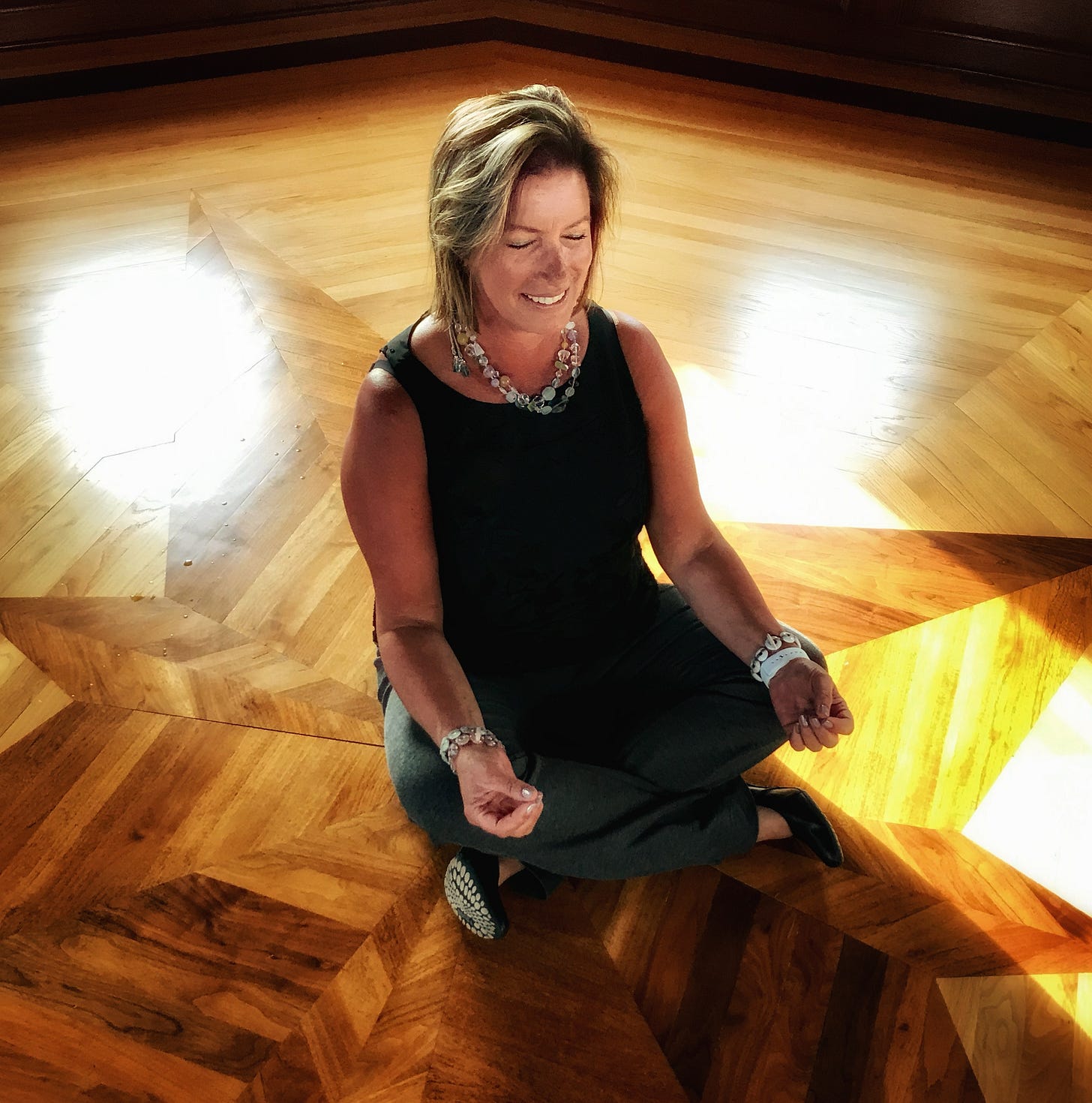
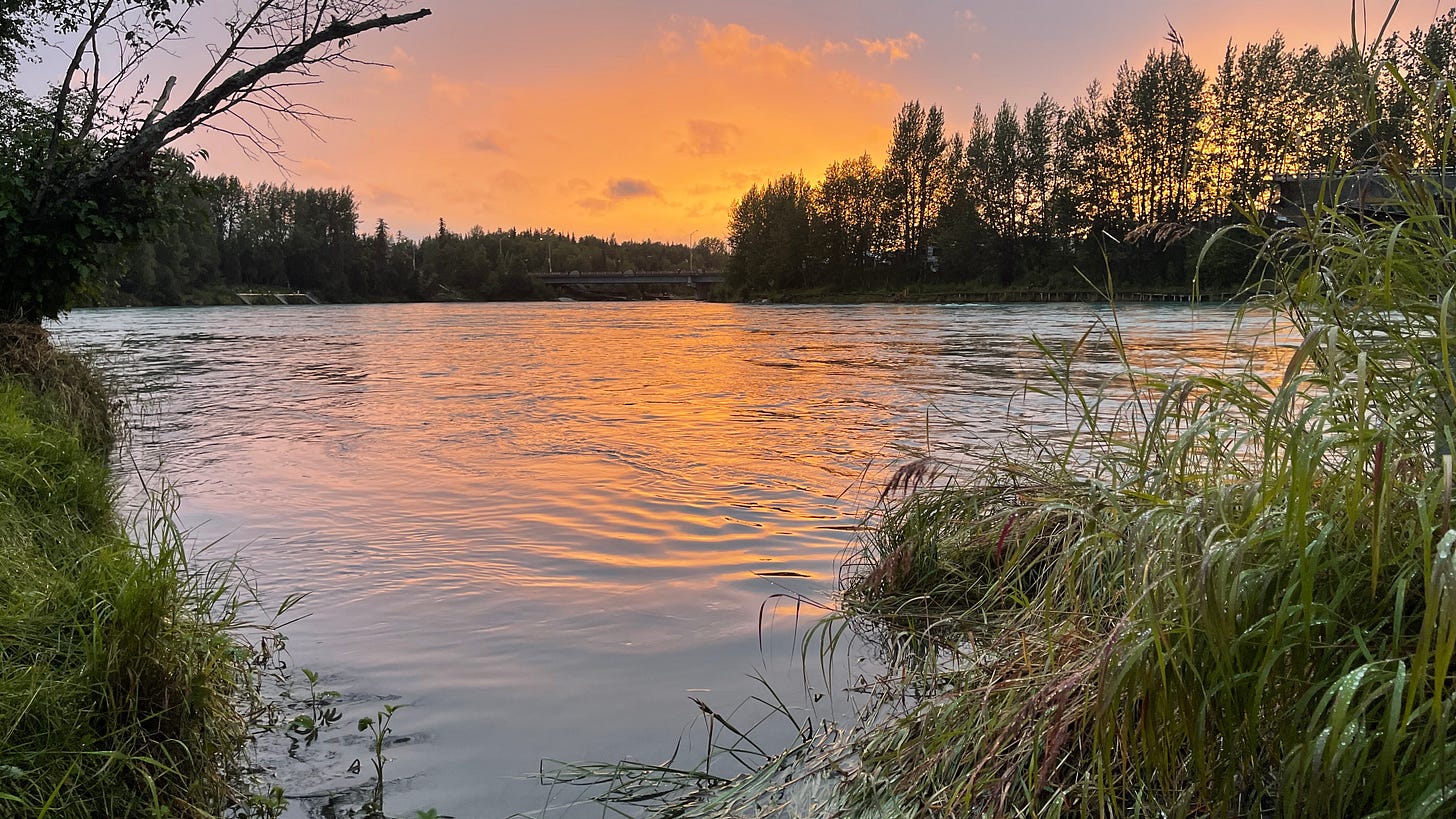
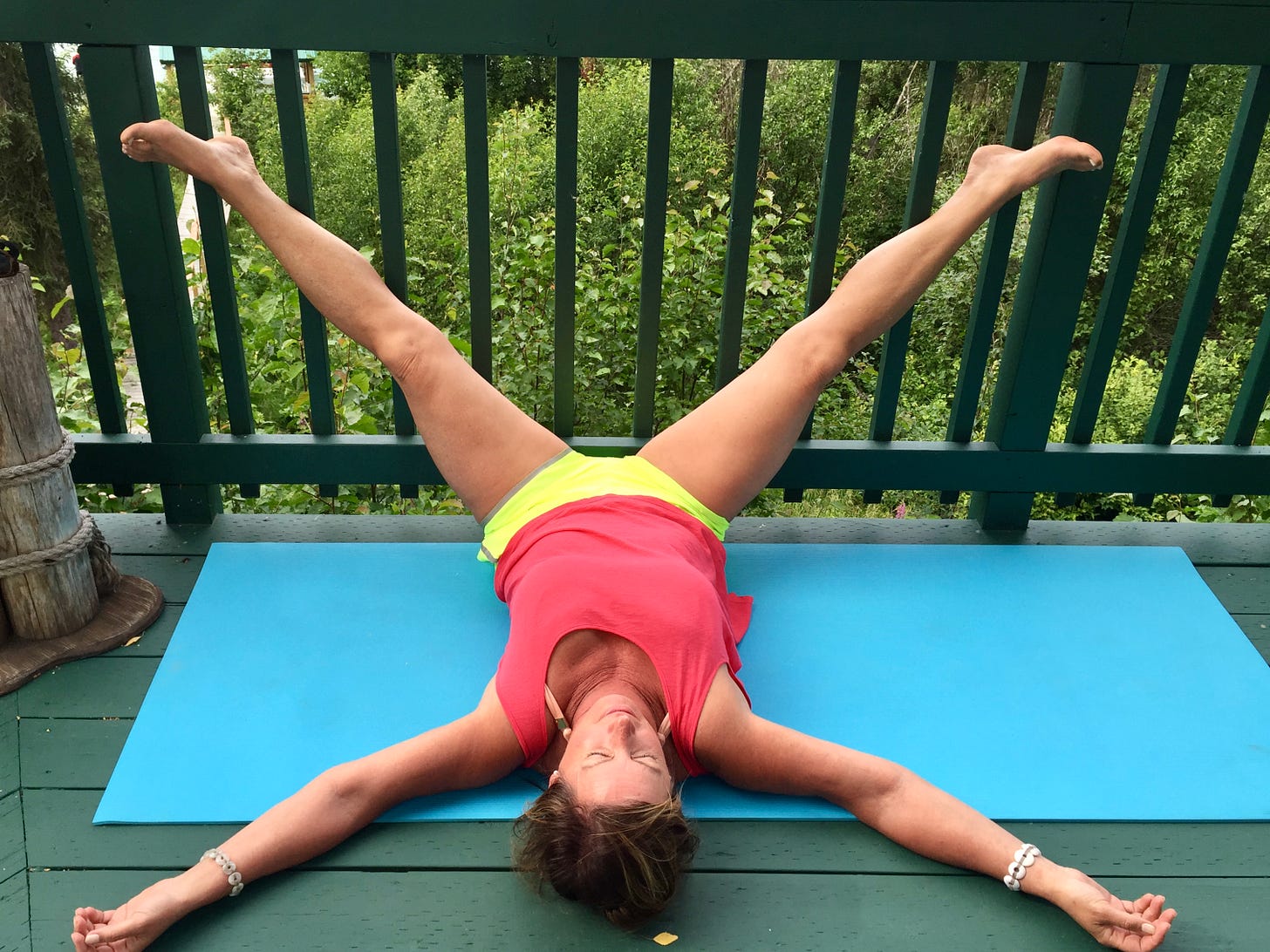
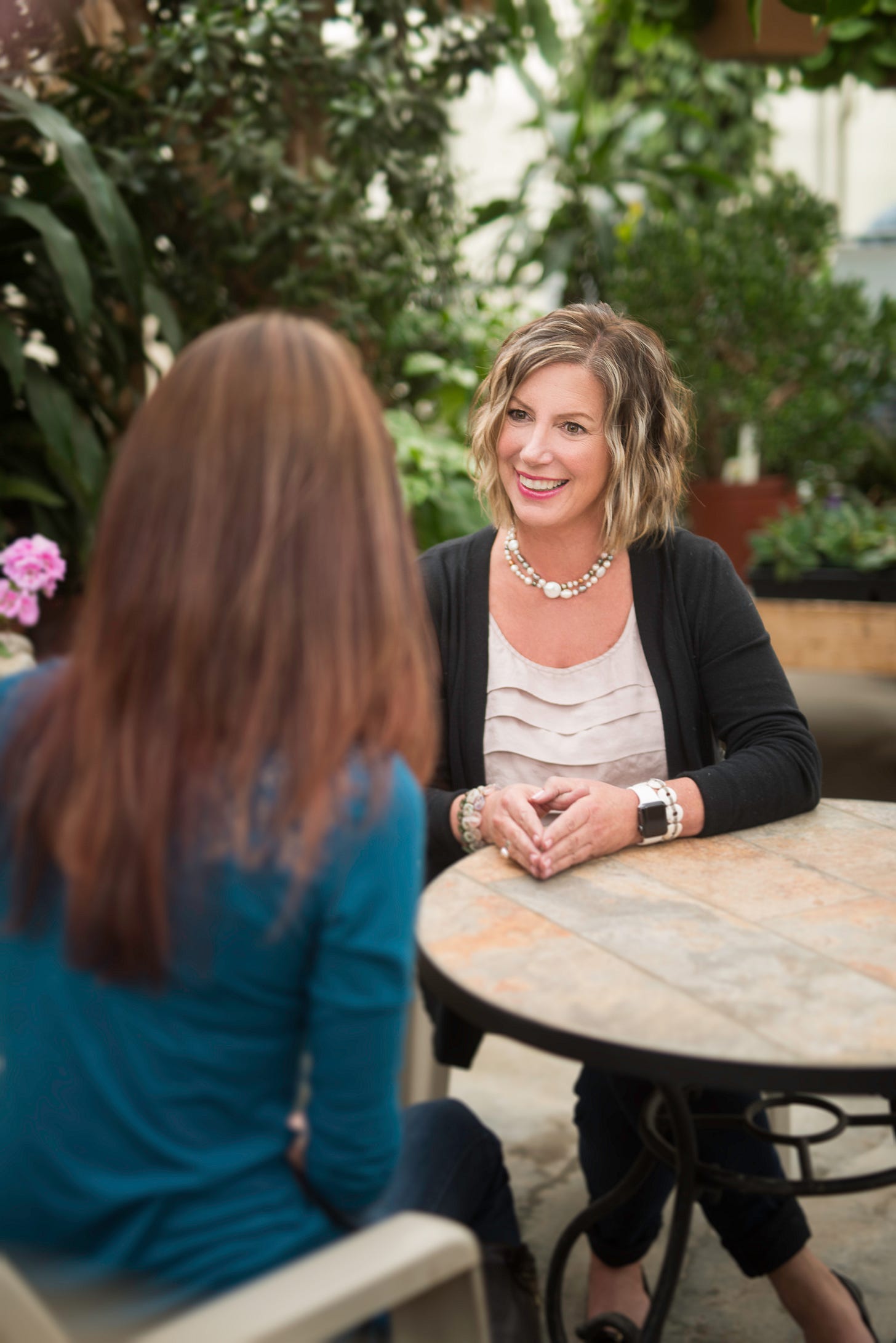
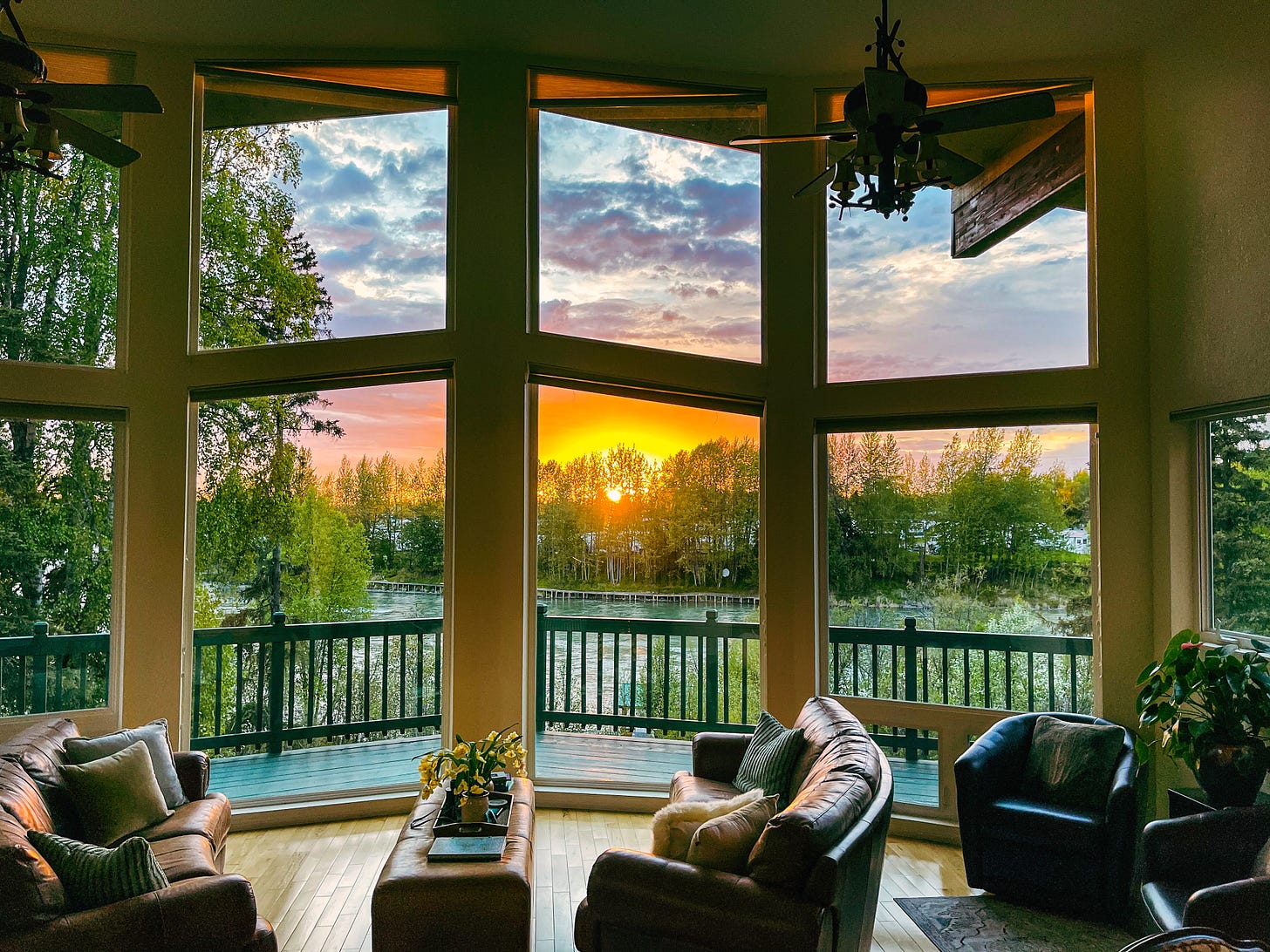
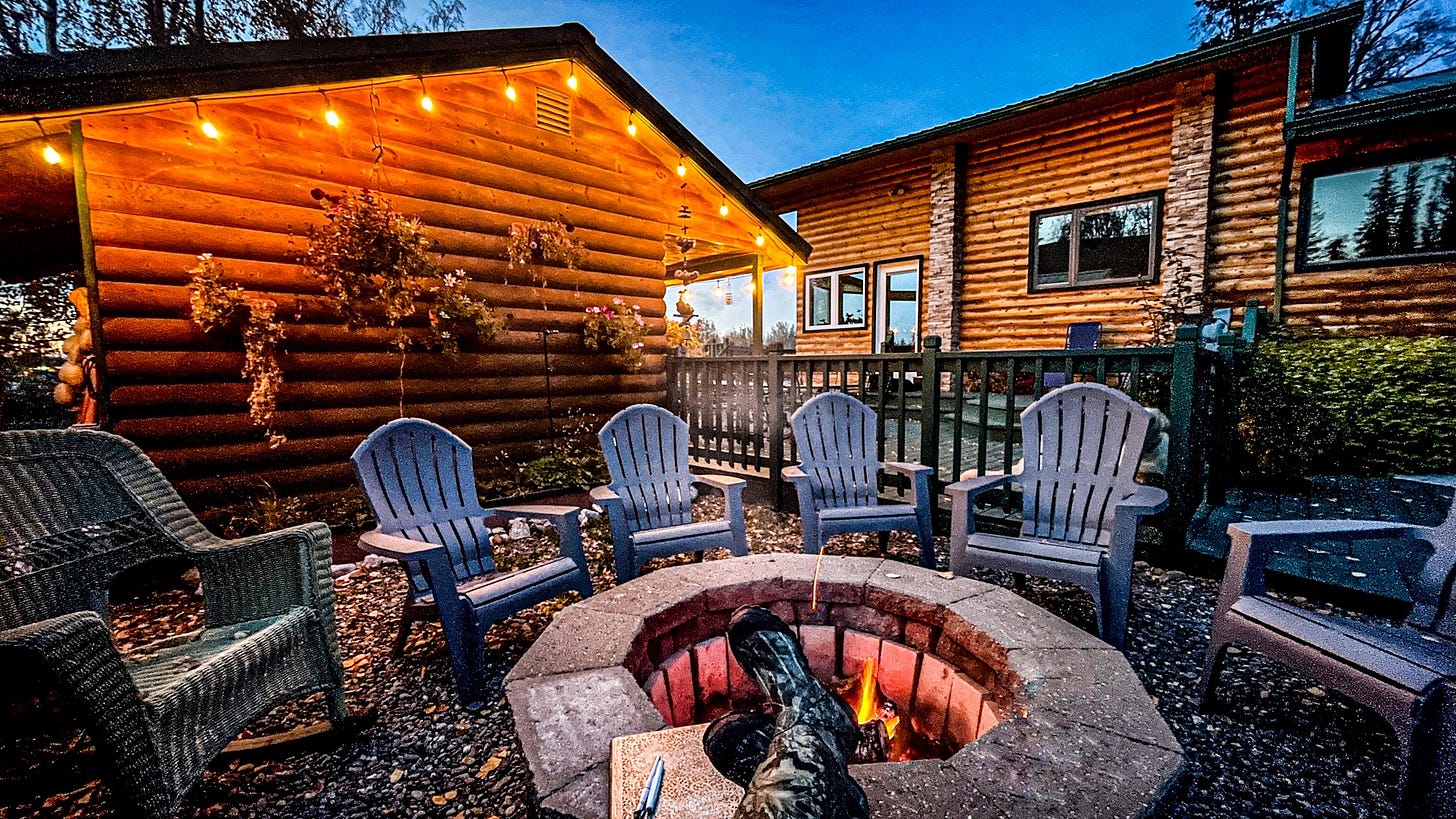
Love this Pegge, I work at being mindful daily. It does take practice, presence, intention and connection. you point out the benefits well.